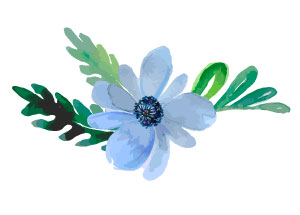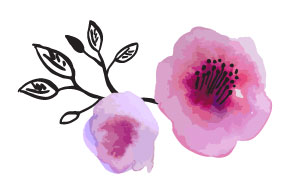Within an elephant community if a mother elephant loses her baby, the other elephants use their trunks to form a physical #circleofsupport around her. Despite 1 in 4 pregnancies ending in loss before 12 weeks, in 2015, there was no support specific to early pregnancy loss or miscarriage available in Australia.

Pink Elephants provides the latest resources, information and peer-support for anyone impacted by early pregnancy loss. Using evidence, empathy and connection, our unique digital-first approach offers a single source of specialist support, whenever and wherever it’s needed — for anyone who has directly experienced it, for family and friends, corporate partners or healthcare professionals seeking proven ways to help.
With so much of the current experience of miscarriage based on old science, outdated perceptions, social anxiety and mistruths, Pink Elephants aims to right the story of early pregnancy loss by smashing the stigma, creating a new narrative, and leading to a healthier experience for all.
Founded in Sydney, Australia, in 2016, Pink Elephants is a registered not-for-profit.
Pink Elephants started with a coffee when Sam reached out to Gabbi for support after experiencing her second loss and feeling isolated. During that first coffee, an unmet need was discussed around the support for women experiencing early miscarriage. From the initial diagnosis, to the ensuing loss/procedure and knowing what to expect, right down to the support that partners, family, friends and even healthcare professionals can give – women deserved more. Information needed to be offered. Conversations needed to take place. Validation needed to be given. Connections needed to be made. The First Five Years - Chapter One - link here

Our Purpose
That no one walks the journey of early pregnancy loss alone
Pink Elephants works to RIGHT the story of early pregnancy loss. So much of the experience around early pregnancy loss is driven by outdated perceptions and mistruths — whether you’re directly affected by it, a friend unsure how to help, or a healthcare professional just trying to make a difference. We seek to normalise early pregnancy loss by smashing the stigma and leading a new narrative, through evidence-based data, acknowledging the diversity of experiences, providing useful tools and content, and facilitating meaningful connections.

Our Mission
To normalise early pregnancy loss worldwide through evidence, empathy and connection.
Inspired to make a lasting positive difference, Pink Elephants helps those experiencing early pregnancy loss feel cared for, protected and understood. When challenges seem insurmountable, we offer strength, validation and sanctuary.
From our earliest days, we’ve embraced an evidence-based approach to addressing the challenges around early pregnancy loss. You can read more about our own and collaborative research pieces here. While it’s often more convenient to work off assumptions or follow your gut, we always seek first to understand from a diverse range of experiences.
The work that we do — from the policy changes we advocate for, to the peer-support, advice and content we offer — literally changes lives. We always make sure that we start with the data, that we stay open to learning, and earn trust by backing up everything we do with evidence.
We are bold. We believe that the narrative around early pregnancy loss needs a reset. This means challenging social stigmas and long-held mistruths.
We champion many campaigns that challenge the stigma and change the narrative, Leave for Loss and Miscarriage matters are just a couple. We also participate in PR and documentaries to raise awareness. See our media page to read more.
Like the elephants who hold space to support a grieving mother, we understand the importance of creating safe spaces.
READ MORE

The First Five Years - Chapter One
We wanted to create a community where women could come together and grieve. A safe place to be supported and nurtured, a central place with reliable information that would be delivered in a sensitive and empathetic way.
We were alarmed to discover that 1 in 4 pregnancies end in loss¹⁻⁴, which in Australia is an estimated 285 women a day or between 100,000 - 150,000 couples a year ⁵⁻⁷, with the majority occurring within the first 12 weeks. Yet we could not find the type of support we wanted anywhere, we even struggled to find research around the emotional impact of early pregnancy loss.
We poured our heart and soul into mapping out the support women needed and what resources we could offer them. We wrote content and had it designed beautifully. Our brand aesthetic is intentional. It’s designed to be a virtual hug when a woman needs it most. Our resources were peer reviewed not only by other women who’d experienced loss, but also by front line medical professionals, and we were heart- warmed with the overwhelmingly positive responses.
We launched our social media channels with an aim to raise awareness into the impact of early pregnancy loss, to dispel the myths, to challenge the cultural norms and to break the silence. Gradually our communities grew and word spread of our support service specific to early pregnancy loss. Every day more women engaged with our content, downloaded our resources and join our online communities.
We conducted a research piece in which we surveyed 1700 women and discovered that 75% felt unsupported through miscarriage.
We developed our personalised peer support program whereby women have access to a mentor for six free phone sessions to support them through their loss. This was an innovative peer support service like no other in that you were able to build a meaningful personal connection with an ambassador who understood your pain. Once again, the feedback was incredible and this program continues to grow and develop.
Pink Elephants has grown phenomenally because of the overwhelming need for what we offer and we are incredibly proud of all that we have achieved in such a short space of time. We have worked every day on it’s growth and we have forged a strong community that continues to gain momentum. We have shared our vision with our supporters and engaged many different stakeholders who each play their role in championing change. We have created new programs that are driving cultural change in unexpected places through our Fertility in the Workplace program and our Leave for Loss campaign.
If early pregnancy loss impacts so many of us, it’s definitely time for change. More research is being conducted into highlighting the psychosocial impact of loss directly linking miscarriage to increased and long lasting trauma and anxiety. An early intervention peer support model such as the Pink Elephants is critical in reducing these rates.
We’re excited to see the new chapter of Pink Elephants unfold and to once and for all, RIGHT the story of early pregnancy loss.
You can empower our #circleofsupport to grow by donating here .
1. Collins C, Riggs DW, Due C. The impact of pregnancy loss on women's adult relationships. Grief Matters: The Australian Journal of Grief and Bereavement. 2014;17(2):44.
2. Bellhouse C, Temple-Smith MJ, Bilardi JE. “It’s just one of those things people don’t seem to talk about...” women’s experiences of social support following miscarriage: a qualitative study. BMC Women’s Health. 2018 Oct 29;18(1).
3. McLean A, Flynn CA. 'It's not just a pap-smear': Women speak of their experiences of hospital treatment after miscarriage. Qualitative Social Work. 2013;12(6):782 - 798. doi: 10.1177/1473325012464099.
4. Lee L, Ma W, Davies S, Kammers M. Toward Optimal Emotional Care During the Experience of Miscarriage: An Integrative Review of the Perspectives of Women, Partners, and Health Care Providers. Journal of Midwifery & Women’s Health. 2022 Nov 12;
5. Oderberg I, 2023, Hard to Bear: Investigating the science and silence of miscarriage, Ultimo Press.
6. Miscarriage Australia. Miscarriage Australia 2022. www.miscarriageaustralia.com.au.
7. Australian Bureau of Statistics. Births, Australia [Internet]. Canberra: ABS; 1997 [cited 2023 August 11]. Available from: https://www.ausstats.abs.gov.au/ausstats/subscriber.nsf/0/CA25687100069892CA25688900160673/$File/33010_1997.pdf.